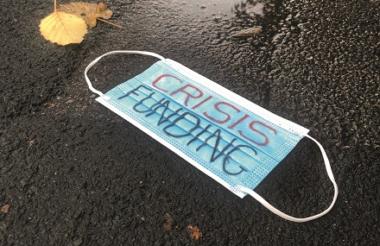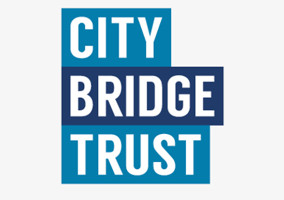According to an old Chinese proverb, “a crisis is an opportunity riding a dangerous wind”.
As London’s biggest independent charity funder, City Bridge Trust has certainly felt the full force of the storm during this extraordinary past year but has also, I believe, seized the opportunity to drive change in the sector which can, and must, continue beyond the pandemic.
The Covid crisis brought into sharp focus the pre-existing racial, financial and class divides which blight our society, and we had to quickly change how we work to ensure funding could be directed to help the most marginalised people in London – those who have suffered disproportionately during the pandemic.
Very early on, we issued more than 200 one-off grants, totalling over £1.7m, to existing grantees facing surging demand just as their ability to raise funds contracted, giving them the ability to quickly adapt their services to meet the needs of their communities during lockdown.
We also agreed that grantees could convert funding for specific projects into core funding, to ensure under-pressure organisations were not bound unnecessarily by funding expectations set before the pandemic, and could direct funding to where it was most needed.
Convening role
However, the main thrust of our activity during the pandemic has been that of convening the sector to respond promptly to the crisis. Working with the Greater London Authority and umbrella organisation London Funders, in March last year we set up the London Community Response Fund (LCRF).
Within two weeks of the first lockdown being declared, it was providing an easily accessible gateway, via a single application form, for organisations urgently seeking funds. Several funders put their own criteria to one side and joined with us to meet the emerging needs of Londoners.
Getting the fund up and running so quickly presented huge legal, financial and administrative challenges which required us to draw upon and develop our strong relationships with other organisations in the sector.
Taking risks
One of the key issues was being prepared to take more risks, but the beauty of the LCRF was that it allowed the risk to be spread among the partners. Many organisations we chose to fund through the LCRF would have been considered too risky for us to fund alone for reasons such as having fewer than four trustees, or only having one year of accounts available.
Often these small, community-led organisations were the only ones in place to help people on the frontline of the pandemic – such as the small Somali community group which delivered food to those unable to leave the house and unaware of local services or foodbanks available.
Other organisations metamorphosised completely. We saw a scout group turning into a foodbank and a youth agency turning into a food parcel delivery service. We trusted frontline organisations to adapt their services to the needs of their communities, without having to explain why. Taking that risk has paid off for many organisations who were free to flex and flow to meet the most pressing needs.
Putting your egos aside works
What have we learned? That collaboration – putting your egos and your organisation’s priorities to one side in order to come together to achieve shared goals – works. Without compromising on the assessment, checking and vetting of potential grantees, we administered over 2,000 grants to organisations with which we had not previously had a relationship.
This shift in focus allowed us – a large and, to be honest, at times bureaucratic organisation – to collaborate in an unprecedented way, and by learning from our smaller, more nimble sector colleagues, we could aim for the possible, not the perfect.
It has been such a privilege to chair City Bridge Trust during this challenging period and I am indebted to my predecessors who, through the creation of our Bridging Divides strategy and the values it espouses – such as being adaptive and collaborative – paved the way for our response to the crisis.
Opportunity to reimagine services, funding and delivery
During the darkest days of the Second World War, William Beveridge’s seminal report on social policy created a blueprint which would reshape post-war Britain and lay the groundwork for the National Health Service – an organisation we cherish more than ever in the light of its critical role during the pandemic.
In a similar way, as the country emerges from arguably the greatest challenge it has faced since the war, we now have an opportunity to completely rebuild and reimagine the way the services provided by the charity sector should be funded and delivered in the future.
It’s crucial that funders such as ours lead the way, working with charities and statutory bodies to ensure the positive changes to emerge from the pandemic – from cutting red tape and thereby easing the process of applying for grants, to a more flexible approach to grant-giving – are maintained and built upon.
Covid-19 has not only turned an overdue spotlight on the importance of the vital role charities play in helping vulnerable people in our society, but has also highlighted the fact that collaboration in the charity sector is key – not just in a crisis but at all times.
We must seize the moment, learn the lessons of this crisis and ensure that the reconstruction of our country includes rebuilding a charity sector which meets the need of the post-pandemic world.
Dhruv Patel was chair of City Bridge Trust until recently
Related articles












